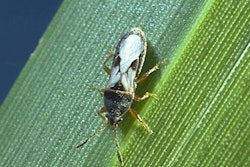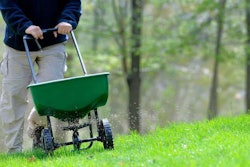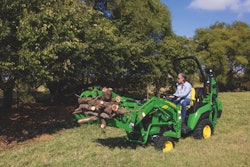Don’t get too comfortable with the chemical products you’re currently using on turf. Doing so could lead to misapplication, even for a product you’ve been using for years.
“People use products for years and years, and rates get ingrained in their heads,” says Bob Goglia, Syngenta Professional Products’ turf market manager responsible for fungicides.
Memorizing the application rate means most likely you’re not consistently consulting the label, even when you replenish your stock. And you should always be in the habit of checking the label – especially as more and more manufacturers are adjusting application rates in an effort to maximize efficiency.
“Manufacturers change formulations to make these products stronger or weaker,” Goglia says. For example, the reformulated glyphosates (RoundUp, Prosecutor Pro and Touchdown Pro) are stronger, so application rates are lower than the old rates and you don’t have to apply as much. “I mean, 100-percent dead is 100-percent dead, but you still don’t want to apply too much,” he says. Not only is it a waste of product, it’s not a good environmental practice.
On the flip side, if a product is reformulated to be weaker, you run the risk of reduced efficacy by not following the new rates, which is not going to make you popular with your client.
Reformulation is a trend that will likely continue due to the benefits associated with it. For products reformulated to be stronger, the product will weigh less, making shipping less expensive for the manufacturer. Other benefits associated with reformulation are passed along to the customer: you.
“These updated reformulations reduce the amount of storage required, especially when you need only three gallons of product now instead of four. If you’re carrying the product to the property and mixing it there, you also benefit because there is less to carry,” says Matt Giese, field technical manager, Syngenta Professional Products. Often the reformulated product results in smaller containers, which lower product waste. So they are a benefit for manufacturers, but a nice plus for the end-user, as well.
Water works
Other advances in chemical application are just as practical, focusing on making application easier – even when the applicator can’t control all the factors involved. In the past, some responsibility for the efficacy of a product was put in the hands of the client. It was up to them to water in some products (barring a rain event), within a short amount of time following application. For many products, that timeframe was a short 24 to 48 hours. Many new products offer a much longer time period. Meridian insecticide, for example, can go a week without being watered in. “So you don’t have to worry about the homeowner doing it quickly,” Goglia says. “This goes a long way to help efficacy and you get fewer callbacks from unsatisfied clients.”
Going granular
Another trend in the chemical market is the focus on developing or converting existing products to granular ones. Granulars are gaining popularity for a number of reasons, according to Goglia and Giese. From a liability standpoint, granular products are safer. If they spill, the cleanup is much simpler – you can sweep them up and not be concerned about the runoff damage. If you are driving a truck and have a collision, there isn’t the additional risk of spilled liquid chemicals, which could impact insurance rates.
Ease of use makes granular products especially attractive to lawn care operators and contractors, offering them more flexibility than liquid products. “In the past, you had to give up efficacy if you wanted to use a granular product, but today, many products offer equal efficacy to their liquid counterparts,” Goglia says.
While herbicides and insecticides have had a granular market for years, fungicides are beginning to move into the market, as well.
The availability of more granular products, lower rates and equal efficacy are helping to lure more contractors into offering chemical application as part of their service. “All of these technologies provide a very low barrier to entry for the chemical application market. The equipment entry costs are not expensive, and you may need to purchase a few bags of product as opposed to gallons of product. You’ll see more professionals offering this service,” Giese says.










